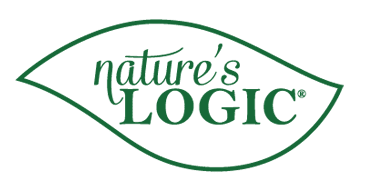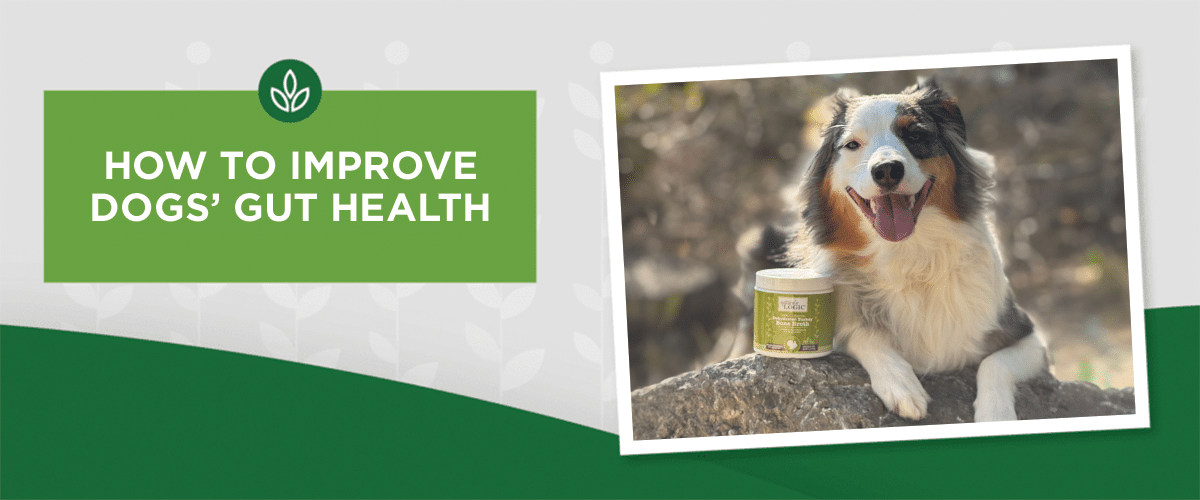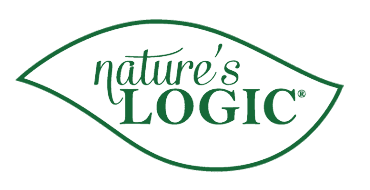How to Improve Your Dog’s Gut Health
As loving pet owners, we prioritize our dogs’ exercise, diet, and regular vet check-ups. However, our dog’s gut health should not get overlooked. Your dog’s digestive system and gut microbiome play an important role in their health and happiness. Understanding how to improve your dog’s gut starts with being able to identify the signs of a healthy or unhealthy gut and knowing how to choose the right foods to support their digestive system for optimal health. Your canine companion’s well-being begins on the inside, and we’re here to help support your pup on the journey to a happier belly.
The Significance of Gut Health in Dogs
A healthy gut plays a much bigger role than just efficient digestion and is vital for your dog’s overall well-being. A healthy gut microbiome is made up of trillions of microscopic, good bacteria that maintain a delicate balance essential for proper digestion, nutrient absorption, a strong immune system, and more.
- Nutrient absorption: Good bacteria help break down food and extract essential nutrients that fuel your dog’s body and energy levels. An imbalanced gut can lead to poor nutrient absorption, affecting their weight and overall health.
- Immune system: The gut microbiome acts as a training ground for the immune system, helping it differentiate between beneficial and harmful substances. A healthy gut can support the immune system’s defenses against allergies, infections, and more.
- Skin health: A healthy gut supports healthy skin. Skin issues like allergies, itching, and dryness can sometimes be linked to an imbalanced gut microbiome.
- Overall well-being: A balanced gut microbiome supports a healthy weight, shiny coat, strong bones, and good stamina. A happy belly supports a happy, healthy dog!
Signs of a Potential Gut Imbalance:
Just like us, our dogs can experience the discomfort of digestive issues. We’ve outlined some signs that might suggest an imbalance in your pet’s gut health, below, if you notice these consult your vet:
- Diarrhea or constipation
- Gas and bloating
- Vomiting
- Skin problems like itching, dryness, or allergies
- Changes in weight or appetite
- Lethargy or low energy
- Behavioral changes
Foods That Support a Healthy Gut
Feeding a quality diet of whole foods rich in prebiotics (fibers that feed good bacteria), probiotics (live bacteria) and digestive enzymes, can positively impact your dog’s gut health. Nature’s Logic dry dog food recipes use whole food ingredients that can naturally contain prebiotics, probiotics, and enzymes, which promote good digestive health for your pet.
We recommend talking to your vet before making any changes to your dog’s diet if you are concerned with their gut health.
- Prebiotics: Work to support a healthy gut ecosystem. Prebiotics are types of dietary fiber that supports gut health. They are needed to nourish good bacteria (probiotics) and support the balance of all microorganisms in the microbiome. Common types of prebiotics include dietary fibers, vegetables, and whole grains.
- Probiotics: Probiotics are beneficial bacteria normally found in your pet’s digestive system. These live bacteria help restore balance in your dog’s gut microbiome, supporting their overall gut health. Maintaining strong levels of these naturally occurring microorganisms help reduce the potential for diseases caused by pathogens, or bad bacteria. These positive effects of probiotics on both humans and animals have been well documented for over thirty years.
- Enzymes: Digestive enzymes break down complex food molecules into simpler, absorbable forms helping your dog use more of the food’s nutrients. For example, Nature’s Logic uses a multi-enzyme blend of plant-based enzymes that includes protease to help digest protein, amylase to help digest starch, cellulase to help break down fibrous foods, and lipase to help digest fats. Nature’s Logic’s proprietary enzyme blend is specially formulated to support the digestive system of dogs and cats on high animal-protein diets.
When looking for products that include prebiotics, probiotics, and digestive enzymes to support your dog’s gut, look for dog specific supplements, like bone broth, or probiotic-enriched foods like Nature’s Logic dry dog food recipes.
- Bone Broth: With its collagen benefits as a bonus, bone broth helps support the gut lining and overall gut function. It’s also a mineral and electrolyte powerhouse, which supports your pup’s overall health.
Foods that Disrupt Gut Health
Some foods commonly given to dogs that can disrupt their gut biome and may lead to gastrointestinal issues include:
- Human Foods: Sharing human foods that are not appropriate for dogs, like chocolate, onions, garlic, and certain artificial sweeteners (xylitol) can be harmful.
- Fatty Foods: High-fat foods, such as fatty cuts of meat and fried items can disrupt the balance in the gut.
- Bones: While bones are often given as treats, they can cause digestive issues, including constipation or blockages, especially if they splinter.
- Dairy Products: Some dogs may be lactose intolerant and feeding them dairy products like milk and cheese can lead to digestive upset.
- Certain Fruits and Vegetables: While many fruits and vegetables are safe for dogs, some like grapes, raisins, and onions, can be toxic to your pup.
Additional Considerations Regarding Gut Health
- Minimize Stress: Stress can negatively affect the gut microbiome. Work to promote a calm environment for your dog and implement regular exercise and plenty of love and playtime.
- Limit Antibiotics: While necessary for certain infections, antibiotics can cause imbalances in the gut microbiome. Talk to your vet if you have any concerns regarding the medication recommended.
Supporting your Dog’s Gut Microbiome
As loving pet owners, we understand the impact our furry companion’s health has on our lives. By being aware of the signs of a healthy gut and prioritizing the foods that help to maintain its delicate balance, we can support our pup’s health beyond just their regular walks and vet visits.









